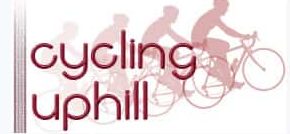I always knew doping was wrong.
- It’s against the rules
- It’s against the corinthian ideal of sport
- It’s bad for your health. e.t.c.
I could list another 97 reasons, but what I never appreciated – was how doping creates a toxic legacy for many years after the event.
The legacy of generations of dopers, is that it has made people prone to cynicism, suspicion and disbelief. It is a very toxic legacy for cycling; yet it is not the dopers who face the music – they retire, keep their prize money, write a best selling confessional story into the bargain – or get a job in the media…
The problem is that against a backdrop of recent doping histories, exceptional performances in cycling are frequently compared against former dopers. It’s good to ride up a mountain fast, but if you ride up faster than a former doper, people are ready to jump to conclusions. Whether justified or not, it is painful to see, and diminishes the potential of sport to act as a source of inspiration and enjoyment.
Some random points that spring to mind
- People who won big races through doping – were not necessarily the most gifted athletes of their generation. They were the best doped athletes. If you read the USADA report on Lance Armstrong and the testimonies of former dopers – doping did not create a level playing field. It depended on the quality of your doctor / medical advice, and how much dope you dared to take.
- The best athletes of that ‘lost generation’ may never even have made it to professional level – but given up because they didn’t want to take the doping option.
- In the USADA report into US Postal, it stated – exceptional performance is not of itself a trigger for a doping investigation.
“It is important to note here, however, that doping cases can never be premised upon mere suspicion. Athletes are entitled to the benefit of the doubt in favor of the legitimacy of their performances. Therefore, no doping case should ever be brought on any basis other than provable evidence of doping.”
USADA Reasoned decision, p 41.
- Limits of achievement. By definition, anyone who rides the tour de France needs very gifted talent. To win the Tour is to stretch the limits of what humans can achieve. Because to win the tour, you need to be in the Top one. You maybe able to fluke the odd tour (Oscar Pereiro springs to mind – actually he doesn’t, I had to google to learn how to spell his name; Pereiro won the Tour de France in 2006, after Floyd Landis got DQ for a failed dope test) But, to win it on multiple occasions you would have to be very gifted. The kind of gifted talent, that needs much more than just a high VO2 max or low heart rate.
- Evidence eventually comes. Armstrong did fail dope tests they were just covered up. The evidence against Armstrong was not that he was the dominant rider for seven consecutive tours. There were a stream of whistleblowers willing to come forward, doping tests evaded, dodgy doctor employed, obvious bullying of people who stepped out of line. Just read David Walsh’s (L.A. Confidential, 2003) or the USADA report in full.
- Progression is possible. If you take doping out of the equation, some progression is possible in any sport. Especially in a sport like cycling, where technological improvements (especially in aerodynamics) can change speeds.
- In the shoes of cyclists. When I got involved in following professional cycling in the relatively dark days of Armstrong domination – my heroes were only those who I felt were clean – especially if they were willing to risk ostricisation from the perverse morality of the peleton. Riders like Paul Kimmage, Graeme Obree, Christophe Basson. Why? because riding clean is more important than winning. Winning by dishonest means is worse than useless.
- But, it does cross my mind what it would be like to be in the shoes of an exceptionally talented cyclist, ride clean, but have a never ending stream of suspicion, cynicism and even outright hostility? Perhaps it’s because I can ride uphill quite quickly, and have thinner arms – than he of thin arm fame. What would it like to be in the melee of the doping storm? I guess it’s OK, if you have a clean conscience, but even so, it’s pretty unpleasant. Damned if you win, damned if you don’t. The Lantern Rouge is usually a pretty cool thing to win. It is definitely true that in the Tour de France, losers are often more popular than winners – it’s been like this for many decades. It’s hard to believe that the mini-god of cycling – Merckx was often unpopular – until he retired, when everyone decided he was actually the greatest cyclist of all history – past, present and future.
- It is good to have as much transparency and scientific evidence as possible. In this regard, it is probably a good thing for power profiles to be used as part of the equation – not necessarily for public consumption (i.e. public speculation), but use by independent experts as part of the overall understanding.
- There is also part of me that listens to people and intuitively comes to a judgement about whether someone is being sincere / honest. If you’re ultra cautious and cynical you will say you always have to be pessimistic, at least where cycling is involved. After all, I did waste a whole day watching Floyd Landis testosterone fuelled remarkable come-back; I wasted several years watching US Postal dominating the tour. But, when I watch an interview with the likes of Chris Froome and this with Geraint Thomas BBC, the feeling I get is that it is someone riding clean and being honest. People may say only a fool would rely on ‘intuitive feelings’ and perhaps they are right. But I’d rather err on that side of the equation – rather than err on the side of perpetual suspicion. Perhaps it is is also easier to believe in this new generation, because I never believed in Armstrong, and always disliked what Armstrong did to cycling.
Conclusion
It is good that their is no longer tolerance of doping. In the bad old days – riders would take industrial quantities of dope, lie for a few years, get a pitiful six month ban and then seemingly coming back with undiminished popularity. Hopefully those days are over; it is good there is zero tolerance of doping. If Armstrong did one good thing for cycling – it was to finally make doping completely unacceptable – even if you were a so-called ‘Great Champion’.
But, to oppose doping and fight for a clean sport do we have to become ultra cynical and suspicious of anything that goes up a mountain?
One idea is to leave doping investigations to independent professional bodies – WADA, UKADD, USADA. Not the UCI or national federations who may have vested interests in protecting riders – but nor should it be on the basis of anonymous internet users who extrapolate power figures from the Sky and become judge, jury and executioner.


As a clean cyclist, and we have to assume he is, I think Froome has dealt with this incredibly well, though god knows how anyone could continue to perform at that level whilst under such a sustained psychic onslaught (and still come across as a decent bloke).
However, I am personally coming round to the idea that all the GT teams (including Sky) could be more transparent about their power data.
That said, I’m glad you shared USADA’s point about ‘provable evidence of doping,’ it’s an important to keep in mind – on its own power data is not evidence of doping, a fact that this recent TdF hullaballoo seems intent on wilfully ignoring.
It was always the case that, at some point, a clean rider would emerge who’d start challenging the climbing times of the dopers. Froome is, perhaps, reaping the storm of being that rider?
Love your blog btw!